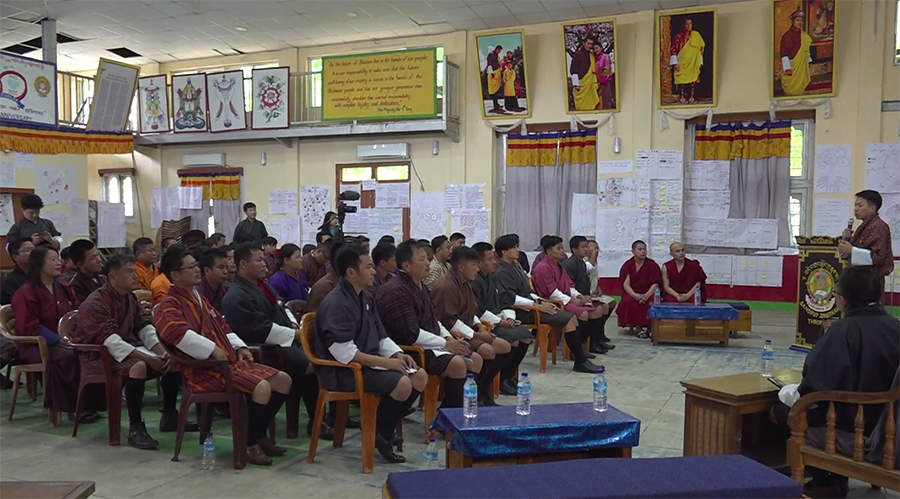
Engaging the youth, women and persons with disabilities in decision-making is crucial for a balanced, age-friendly and non-discriminatory development model for a community. This is exactly what the Bhutan Centre for Media and Democracy, BCMD educated the local leaders of Samdrup Jongkhar through its recent workshop called the Gross National Happiness-Based Community Analysis and Participatory Planning.
The six-day workshop which ended on Thursday for 40 local leaders and five youths in Samdrup Jongkhar was to foster greater awareness and inclusivity in the consultation and planning processes. This is intended to encourage a more holistic approach to community development.
Local leaders who took part in the workshop said normally most of the local government offices carry out planning activities in consultation with local influencers or more commonly known as Goshey Nyensheys in Dzongkha.
However, going by their comments on the workshop, most of the local leaders seemed to have understood the importance of involving youth, women and persons with disabilities in every stage of the planning process. They are committed to creating more inclusive and responsive communities that address the needs and aspirations of all residents.
“We usually plan our activities as per the views of the people present in the consultation meeting. From this workshop, I learned that we should be doing more to bring onboard persons with disabilities who cannot come to attend the meetings. Similarly, most youths are too shy to talk in meetings, so we have to find other solutions to hear them out,” said Karma Dema, Dewathang Gup.
“The workshop has enabled us to come up with an all-inclusive plan which caters to the needs of the community,” said Tenzin Dorji, Gewog Administrative Officer of Martshala Gewog.
“So far we have been making all the decisions at the Gewog Tshogde meetings but now we can seek solutions from the community as well,” said Sangay Lhamo, Orong Gewog Mangmi.
“We cannot understand everyone’s problem, so I realised that important to include people with disabilities, youth and all others in the community to plan developmental activities,” said Yam Bahadur Adhikari, Phuentshothang Gewog Tshogpa.
The workshop provided a platform for local leaders to assess their communities from an economic, social, and environmental perspective. By integrating GNH principles, participants are introduced to a deeper understanding of the interconnectedness of these dimensions and how they influence well-being.
“The practice of planning developmental activities based on the advice of the influential people in the community was there and it is still being practised. However, we feel that it is better to include women, persons with disabilities and youth as well in the planning process,” said Namgyel Wangchuk, BCMD’s Programme Officer.
Local leaders are now expected to further drive positive change within their communities. They were given a toolkit that reflects the core principles of Gross National Happiness from which they can derive ideas for community development.
Kinley Wangchuk, Samdrup Jongkhar
Edited by Kipchu









